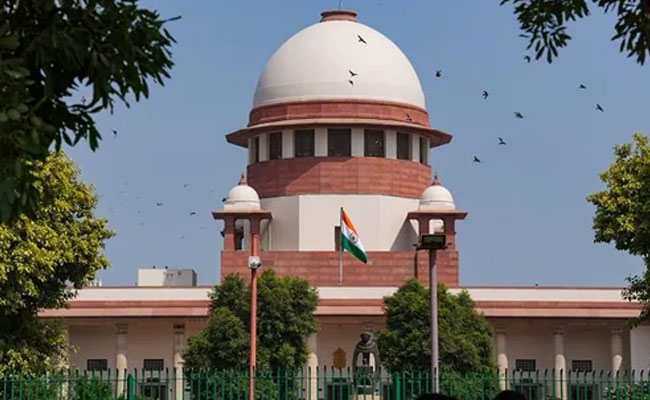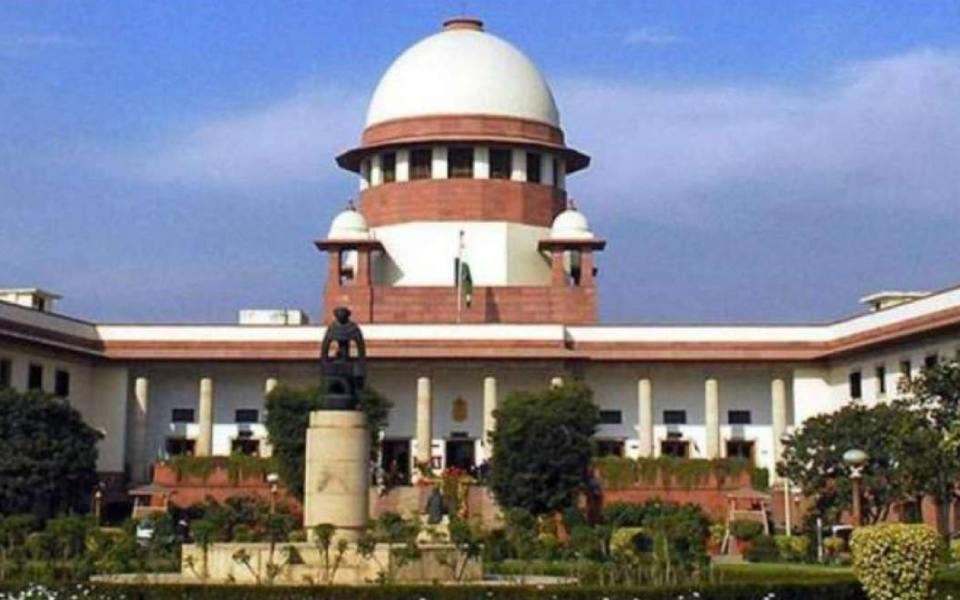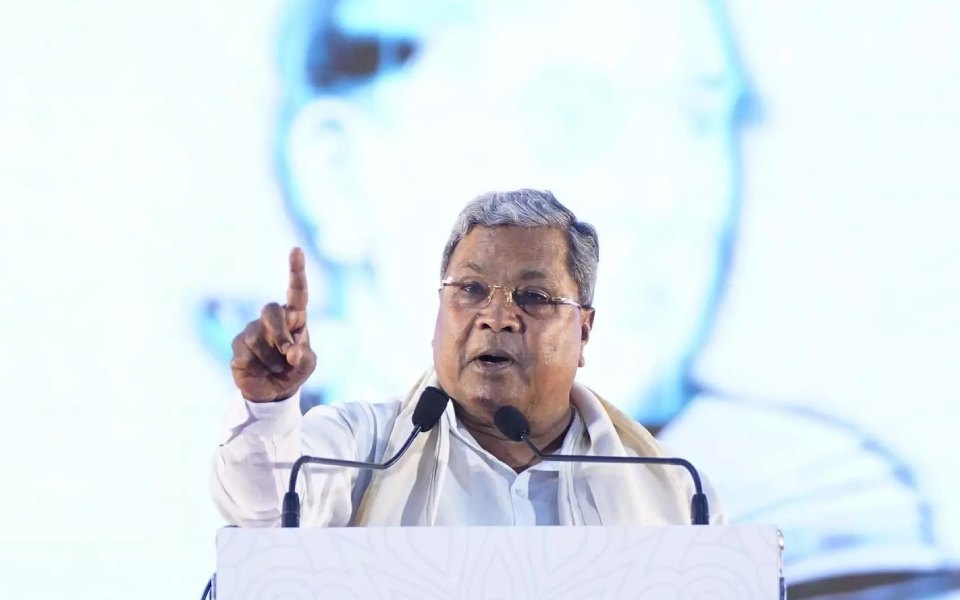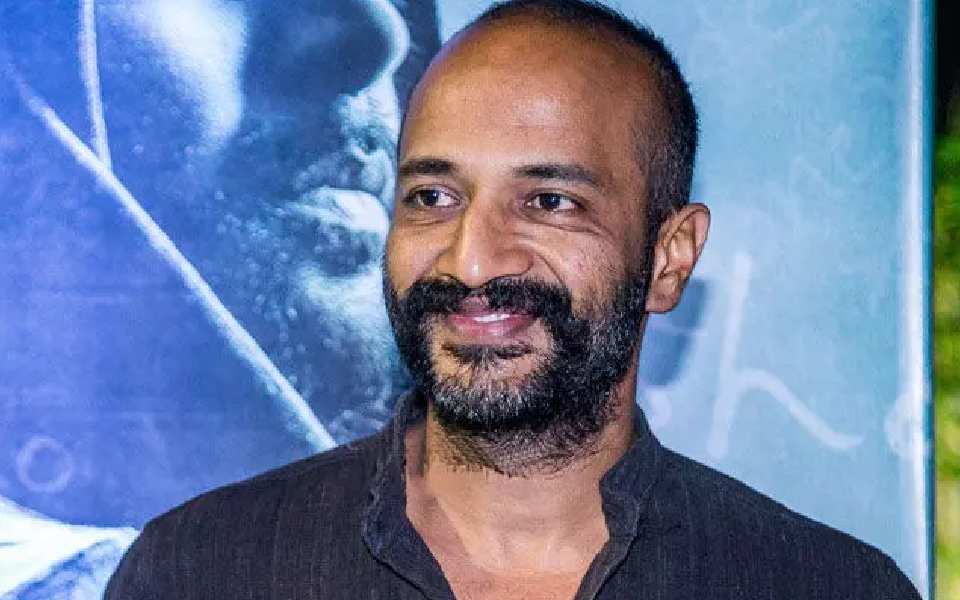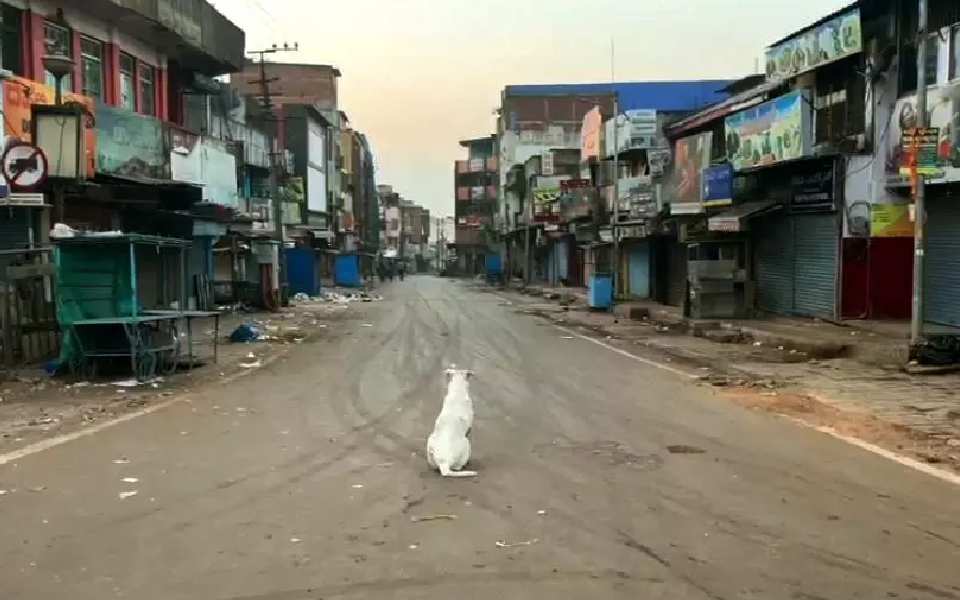New Delhi : The Supreme Court has mandated that the State Bank of India (SBI) must disclose electoral bond numbers, in addition to the details it has already revealed regarding the purchase and redemption of the bonds.
In a recent development related to the disclosure process of electoral bond details, a bench comprising Chief Justice DY Chandrachud, Justice Sanjiv Khanna, Justice BR Gavai, Justice JB Pardiwala, and Justice Manoj Misra reconvened to hear an application filed by the Election Commission (ECI). The ECI sought the return of sealed cover documents submitted by the commission to the court as per its interim order.
The ECI clarified that it had not retained any copies of these documents to maintain confidentiality and requested the return of the sealed envelopes to proceed with necessary actions.
At the start of the hearing, Chief Justice Chandrachud said, "One thing. Who is appearing for the State Bank of India? They have not disclosed the bond numbers. It has to be disclosed by the State Bank of India."
Solicitor General Tushar Mehta urged the court to issue notice to the bank, stating, "I am not representing the State Bank of India. However, Your Lordships may issue notice to the SBI since they may have something to say. I believe they need to be present."
Responding to this, Senior Advocate Kapil Sibal referred to the court's ruling, insisting that it was an 'inclusive' order requiring all relevant details to be provided.
Chief Justice Chandrachud also expressed disapproval that the State Bank's counsel was absent, stating that they were not parties to the Election Commission's application.
Despite initial reluctance, the Chief Justice, at the solicitor general's insistence, directed notice to be issued to the State Bank of India.
The bench also disposed of the Election Commission's application with no objections from any parties. The registrar general was instructed to scan and digitise the data filed by the commission by 5 PM the following day. Once completed, the original copies were to be returned to the Election Commission of India, with scanned copies also made available to them. The data was to be uploaded on the Election Commission's website.
Background:
This development arises from the Supreme Court's earlier ruling declaring the electoral bonds scheme unconstitutional. In a landmark judgement on February 15, the bench led by Chief Justice Chandrachud struck down the scheme, stating that anonymous electoral bonds contravened the right to information under Article 19(1)(a) of the Constitution.
Following this, the State Bank of India, the issuing bank of electoral bonds, was directed to cease issuing these bonds immediately. The bank was also instructed to submit details of all bond purchases made since the court's interim order on April 12, 2019, to the Election Commission of India within three weeks, setting the deadline for March 6, 2024.
The State Bank of India submitted the electoral bond details to the Election Commission of India on March 12, complying with the court's order. The Election Commission then uploaded this data on its official website on March 14.
Let the Truth be known. If you read VB and like VB, please be a VB Supporter and Help us deliver the Truth to one and all.
New Delhi, Jan 9: The Supreme Court on Thursday dismissed a batch of pleas seeking to review its October 2023 verdict declining legal sanction to same-sex marriage.
A five-judge bench of Justices B R Gavai, Surya Kant, B V Nagarathna, P S Narasimha and Dipankar Datta took up about 13 petitions related to the matter in chambers and dismissed them.
"We do not find any error apparent on the face of the record. We further find that the view expressed in both the judgements is in accordance with law and as such, no interference is warranted. Accordingly, the review petitions are dismissed," the bench said.
It said the judges have carefully gone through the judgements delivered by Justice (since retired) S Ravindra Bhat speaking for himself and for Justice (since retired) Hima Kohli as well as the concurring opinion expressed by Justice Pamidighantam Sri Narasimha, constituting the majority view.
The bench also rejected a prayer made in the review petitions for hearing in an open court.
According to practice, the review pleas are considered in chambers by the judges.
The new bench was constituted after Justice Sanjiv Khanna, the present CJI, recused from hearing the review petitions on July 10, 2024.
Notably, Justice P S Narasimha is the only member of the original Constitution bench comprising five judges which delivered the verdict, as former CJI D Y Chandrachud and Justices S K Kaul, Ravindra Bhat and Hima Kohli have retired.
A five-judge Constitution bench led by then CJI Chandrachud on October 17, 2024, refused to accord legal backing to same-sex marriages and held there was "no unqualified right" to marriage with the exception of those recognised by law.
The apex court, however, made a strong pitch for the rights of LGBTQIA++ persons so that they didn't face discrimination in accessing goods and services available to others, safe houses known as "garima greh" in all districts for shelter to members of the community facing harassment and violence, and dedicated hotlines in case of trouble.
In its judgement, the bench held transpersons in heterosexual relationships had the freedom and entitlement to marry under the existing statutory provisions.
It said an entitlement to legal recognition of the right to union, akin to marriage or civil union, or conferring legal status to the relationship could be only done through an "enacted law".
The five-judge Constitution bench delivered four separate verdicts on a batch of 21 petitions seeking legal sanction for same-sex marriages.
All five judges were unanimous in refusing the legal recognition to same-sex marriage under the Special Marriage Act and observed it was within Parliament's ambit to change the law for validating such a union.
While former CJI Chandrachud wrote a separate 247-page verdict, Justice Kaul penned a 17-page judgement where he broadly agreed with the former's views.
Justice Bhat, who authored an 89-page judgement for himself and Justice Kohli, disagreed with certain conclusions arrived at by the former CJI, including on applicability of adoption rules for such couples.
Justice Narasimha in his 13-page verdict was in complete agreement with the reasoning and conclusion of Justice Bhat.
The judges were unanimous in holding that queerness was a natural phenomenon and not an "urban or elite" notion.
In his judgement, the former CJI recorded Solicitor General Tushar Mehta's assurance of forming a committee chaired by the cabinet secretary to define and elucidate the scope of entitlements of such couples in a union.
The LGBTQIA++ rights activists, who won a major legal battle in 2018 in the Supreme Court, which decriminalised consensual gay sex, moved the apex court seeking validation of same-sex marriages and consequential reliefs such as rights to adoption, enrolment as parents in schools, opening of bank accounts and availing succession and insurance benefits.
Some of the petitioners sought the apex court to use its plenary power besides the "prestige and moral authority" to push the society to acknowledge such a union and ensure LGBTQIA++ persons led a "dignified" life like heterosexuals.

